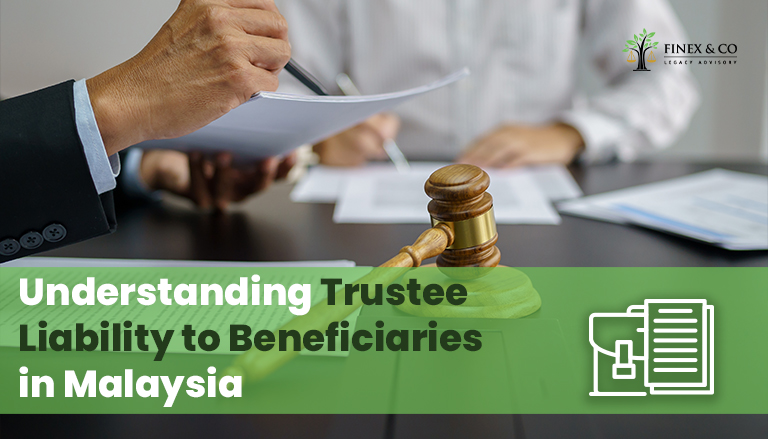Trustees play a pivotal role in the administration of trusts, holding a fiduciary duty to act in the best interests of the beneficiaries. However, there are circumstances in which a trustee may be held liable to the beneficiaries. The Trustee Act of 1949 delineates the powers, duties, and responsibilities of trustees, providing the foundation upon which the liability of trustees is assessed. In the event of a breach of duty by a trustee, beneficiaries are entitled to sue the trustee for compensation in respect of the loss suffered.
a. Breach of Fiduciary Duty
Trustees owe a fiduciary duty to act in the best interests of the beneficiaries. A breach of this duty may occur if a trustee acts inconsistently with the terms of the trust deed or testamentary trust, abuses their powers, or fails to exercise due care and diligence.
b. Negligence or Mismanagement any of the Trust Property
Trustees are expected to manage trust assets prudently. If a trustee’s actions or lack thereof result in negligence or mismanagement of trust property, they may be held liable for any resulting losses suffered by the beneficiaries.
c. Conflict of Interest
Disloyalty occurs when trustees engage in self-dealing or operate within a conflict of interest. Self-dealing entails trustees gaining benefits from transactions involving trust property. Involvement in self-dealing or conflicts of interest, where personal interests diverge from the beneficiaries’ interests, constitutes a serious breach of trust. Even if a trustee attempts to prove that they are acting in good faith and for the benefit of the beneficiaries, it is insufficient to absolve them from liability.
d. Failure to Distribute or Account
Trustees have an obligation to distribute trust assets in accordance with the terms of the trust deed or testamentary trust. A trustee may be held liable if they fail to make timely distributions or do not provide accurate and complete accounts of the trust’s financial transactions to the beneficiaries.
e. Unauthorized Profits
Trustees must not derive unauthorized profits from their position. If a trustee personally benefits from the trust assets, such as making a profit from their position or using trust property in a manner not permitted by the trust deed, they may be held liable for restitution and required to account for any unauthorized gains.
Conclusions
Trustee liability in Malaysia is governed by the Trustee Act 1949 and common law principles. Trustees must exercise diligence, avoid conflicts of interest, and adhere to the terms of the trust deed or testamentary trust to fulfill their fiduciary duties. Beneficiaries have legal recourse when trustees breach their obligations, and the court has the authority to order restitution, damages, removal of the trustee, or other appropriate remedies to safeguard the interests of the beneficiaries. Understanding the legal parameters surrounding trustee liability is crucial for both trustees and beneficiaries involved in the administration of trusts in Malaysia.
You may make an appointment with our legal advisor here:
https://calendly.com/finex-and-co-legacy-advisory/tea-talk-with-legal-expert






